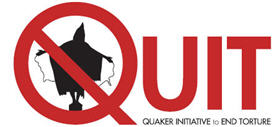September 14, 2009
Obama Admin Fights Bagram Detainee Court Access
By THE ASSOCIATED PRESS www.nytimes.com/aponline/2009/09/14/us/politics/AP-US-Terror-Detainees.html
Filed at 9:16 p.m. ET
WASHINGTON (AP) -- The Obama administration argued late Monday that allowing terrorism detainees in Afghanistan to file lawsuits in U.S. courts challenging their detention would endanger the military mission in that country.
Although the Pentagon is giving the roughly 600 detainees at Bagram Airfield a new chance to challenge their detentions, the Obama administration stuck with Bush administration policy in a court filing Monday night that said the Bagram detainees' rights shouldn't extend as far as U.S. courtrooms.
In a filing with the U.S. Court of Appeals in Washington, the Justice Department said Bagram detainees should not be given equal rights to sue in the United States that the Supreme Court granted last year to detainees being held at the Guantanamo Bay facility in Cuba.
The administration argued in its brief that Bagram is in an active war zone and the sovereign nation of Afghanistan, and there are sensitive diplomatic considerations involving detainees held there. That's in contrast to Cuba, which has no diplomatic relations with the United States and does not have the security implications of a war zone, the administration said.
The filing was made in response to a ruling in April by U.S. District Judge John Bates, who said foreign detainees at Bagram should be allowed to sue in U.S. civilian courts to challenge their confinement. Bates said the cases of the Guantanamo and Bagram detainees were essentially the same -- the first time a federal judge applied the Supreme Court's ruling on Guantanamo detainees to those held elsewhere in the world.
Bates' ruling was applauded by human rights organizations and drew a rebuke from congressional Republicans who said the judge, an Army veteran nominated by then-President George W. Bush, was endangering national security.
Obama's Justice Department has sided with the congressional Republicans and put forward the same argument as the Bush administration. It said in Monday's 85-page filing that allowing Bagram detainees access to U.S. courts would divert military personnel at Bagram and ''have serious adverse consequences for the military mission in Afghanistan.''
Bates' ruling ''reverses long-standing law, imposes great practical problems, conflicts with the considered judgment of both political branches, and risks opening the federal courts to habeas claims brought by detainees held in other theaters of war during future military actions,'' the filing said.
The filing comes on the heels of media reports over the weekend that the Pentagon has a new policy for Bagram detainees to challenge their detentions before military review boards. The prisoners will be given a U.S. military official to serve as their personal representative to help argue their case and for the first time they will be able to call witnesses and submit evidence in their defense.
Bates had cited the Bagram detainees' lack of representation or access to evidence in his April ruling.
